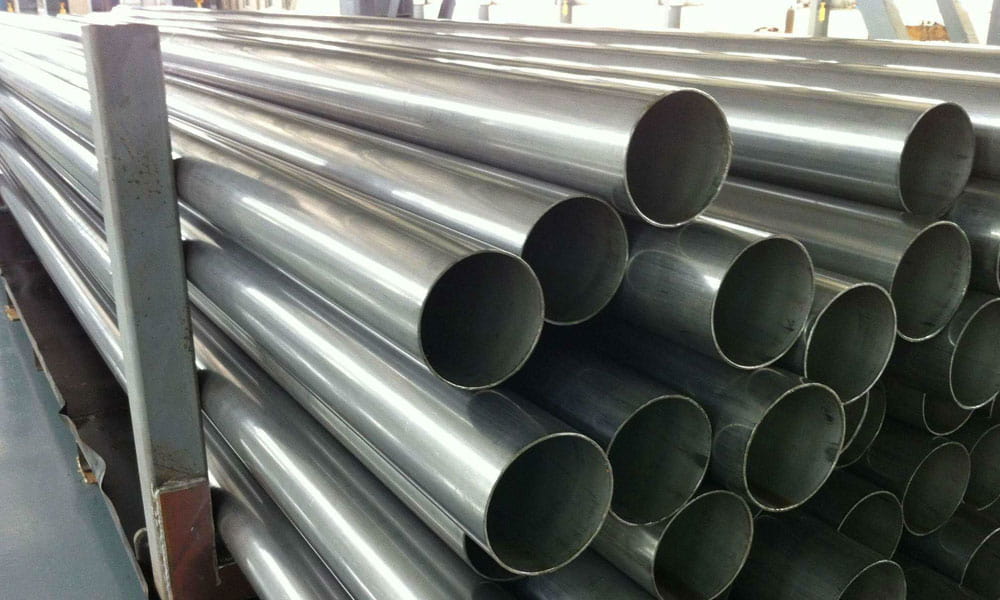- September 4, 2024
- rajveer stainless

When it comes to choosing the right piping system for industrial applications, two common options are Stainless Steel 304 Welded Pipes and Stainless Steel 304 Seamless Pipes. While both have their merits, this article focuses on why Stainless Steel 304 Welded Pipes may be a better choice in many situations. Understanding the advantages of these pipes can help engineers, project managers, and procurement teams make more informed decisions based on cost, performance, and application needs.
Understanding Stainless Steel 304
Before diving into the comparison, it's important to know what Stainless Steel 304 is. It’s an austenitic stainless steel alloy known for its excellent corrosion resistance, high strength, and good weldability. The composition typically includes around 18% chromium and 8% nickel, making it highly durable and suitable for a wide range of environments.
Key Characteristics of Stainless Steel 304
- Corrosion Resistance: The chromium content forms a protective oxide layer that prevents rust and degradation, even in harsh conditions like moisture or chemical exposure.
- Versatility: It can handle a wide range of temperatures, making it ideal for various applications from food processing to chemical manufacturing.
- Weldability: Stainless Steel 304 is easy to weld, which makes it a preferred material for welded pipe production.
What Are Welded Pipes?
Welded pipes are manufactured by rolling a flat metal sheet into a cylindrical shape and then welding the seam. This process is often followed by heat treatment to ensure the seam is as strong as the rest of the pipe. This method offers several benefits, especially in terms of cost and flexibility.
Advantages of Stainless Steel 304 Welded Pipes
Cost-Effectiveness
One of the biggest advantages of Stainless Steel 304 Welded Pipes is their affordability. The manufacturing process is simpler than that of seamless pipes, which reduces production costs. These savings are often passed on to customers, making them a more budget-friendly option for many projects.
Availability and Versatility
Welded pipes are widely available in a variety of sizes and thicknesses. This makes them ideal for both small-scale and large industrial projects. In contrast, seamless pipes are often limited in dimensions due to the complexity of their production.
Consistent Wall Thickness
During the welding process, it’s easier to maintain consistent wall thickness, ensuring uniformity and precision. This is especially important in applications where exact specifications are required. Unlike seamless pipes, which may have slight variations, welded pipes offer more predictable performance.
Strength and Durability
Despite being welded, these pipes are just as strong and durable as seamless ones. The welding seam is heat-treated to match the strength of the rest of the pipe, allowing them to withstand high pressure and harsh environments. In many cases, they perform just as well or even better than seamless pipes.
Corrosion Resistance
The corrosion resistance of Stainless Steel 304 Welded Pipes is comparable to that of seamless pipes. They form a protective chromium oxide layer, making them suitable for use in corrosive environments such as chemical plants, food processing facilities, and petrochemical industries.
Customizability
Welded pipes are highly customizable. Since they are made from sheets, it’s easier to adjust dimensions, lengths, and thicknesses to meet specific project requirements. This flexibility makes them a popular choice for unique or specialized applications.
Real-World Applications
Stainless Steel 304 Welded Pipes are used in a wide range of industries due to their reliability and performance.
Chemical and Petrochemical Industry
In the chemical and petrochemical industry, these pipes are essential for transporting acids, solvents, and other corrosive substances. Their durability and resistance to chemical attack make them a top choice for such demanding environments.
Food and Beverage Industry
The food and beverage industry relies heavily on stainless steel for hygiene and safety. Welded pipes ensure that liquids like milk, juice, and water are transported without contamination, maintaining product quality and safety standards.
Construction Industry
In the construction industry, these pipes are used for plumbing, HVAC systems, and structural support. Their affordability, ease of installation, and long lifespan make them a preferred choice among builders and engineers.
Conclusion
In conclusion, Stainless Steel 304 Welded Pipes offer numerous advantages over seamless pipes, including lower costs, greater availability, consistent quality, and customizability. These features make them a smart choice for a wide range of industrial and commercial applications.
Whether you're working on a chemical plant, food processing facility, or construction project, understanding the benefits of welded pipes can help you make a more informed decision. While the choice between welded and seamless depends on specific project needs, welded pipes provide a compelling balance of performance, affordability, and versatility.
Dmc Kneading Machine,Dmc Mixing Equipment,Rubber Mixing Machine,Ready Mix Compound Machine
Laizhou Baisheng Machinery Technology Co., Ltd. , https://www.baishengsmc.com